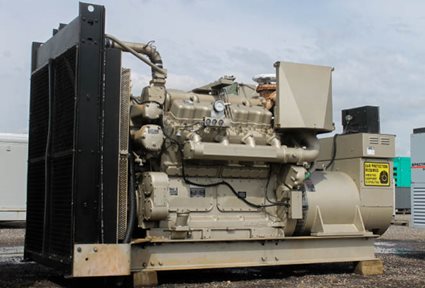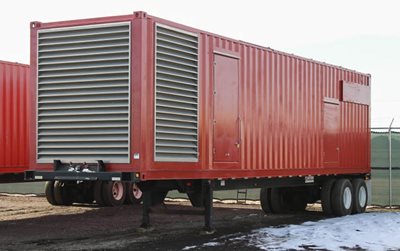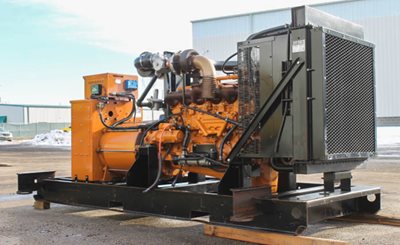|
 Energy & Power Scenario Worldwide Energy & Power Scenario Worldwide
According to the International Energy Agency (IEA), the global demand for energy will grow approximately 60% by 2030. Over the last 25 years, more than 1 billion people in developing nations gained access to modern energy fuels such as coal, electricity, kerosene, liquefied petroleum gas (LPG) and natural gas. However, there are still about 1.6 billion to more than 2 billion people worldwide who have no access to electricity or modern energy services. This number represents nearly a third of the global population. Every year, the number of people without access to modern energy services is increasing by 30 million. Today, it is estimated that 56% of the world’s rural population does not have access to energy services.
Energy & Power Scenarios in Developing Countries
Wood and charcoal account for over 70% of the primary source of fuel used for cooking and heating in developing nations. Furthermore, some less developed nations in Africa rely on the combustion of crop residues for energy. The downside to burning organic material for energy is the high risk of burn-related injuries or death. Also, burning of organic material in the open area is a large contributor to air pollution and poor air quality.
The IEA projects, that despite proposed investments of more than $16 trillion over the next 25 years in the energy sector of developing nations worldwide, 1.4 billion people will still remain without access to electricity. The IEA also estimates that developing nations will witness an average annual growth rate of 4% in primary energy use over the next 20 years. Energy demand in Asia is expected to double over the next 25 years, primarily driven by economic and population growth.
(A) Benefits of Direct Access to Electric Energy
Access
Availability of power is ironically taken for granted in much of the developed world. However, most of that world would come to a near standstill if there was no reliable and adequate source of electric power. To further demonstrate that, a few benefits of direct access to electric energy are listed below.
• Reliable lighting, refrigeration and heat
• Enhanced indoor air quality as availability of electricity reduces dependence on polluting fuel sources. This directly translates to numerous health benefits.
• Reduced fire hazards
• Greater industrial development and business productivity
• Power to run computers such as Internet backbone, data center servers, and individual pc’s
The importance of power availability cannot be emphasized enough. The United Nations Development Program (UNDP) came up with a Human Development Index (HDI) to demonstrate the direct correlation between per capita energy consumption levels and economic and social well-being. The study found that countries with high HDI values have a higher per capita consumption levels of energy. Conversely, countries ranked low in HDI values have lower per capital consumption levels of energy.
Developing countries invariably demonstrate a significant dichotomy in energy consumption. Consumption patterns in affluent households vary significantly from availability and consumption of power in low-income households. Furthermore, the affluent populations typically represent only a small section of the country but consume a disproportionately large amount of power.
 (B) How Can Diesel Generators Be Used To Address Electricity-Related Issues In Developing Countries? (B) How Can Diesel Generators Be Used To Address Electricity-Related Issues In Developing Countries?
(1) Use of Diesel Generators as Micro Power Grids in Remote Areas
For most of the developing world, supplying electrical power from the main national grid to remote rural areas is not an economically viable proposition. Powering up remote locations needs to meet budgetary constraints while at the same time maximizing technical, social and economic benefits. This is generally impractical in countries that have very minimal grid infrastructure because there are often no substations or expansive transmission and distribution lines to run it through.
In these situations, the installation of diesel generators are an ideal solution to meet domestic needs and also high-energy requirements in rural areas. Diesel generators are easy to install and can either be used as standalone systems or as part of hybrid systems in conjunction with other sources like solar power. The main advantage of such a system is the sourcing of power by the lowest cost option depending on the operating environment and time of day.. However, it is also essential when combining power sources to have skilled personnel available to ensure smooth operation of the generators and alternative power sources.
(2) Agriculture
Diesel generators have established themselves as versatile and durable sources of power generation in developing countries for use in lighting, irrigation pumping, cottage industries, and rural processing facilities, just to name a few. For example, India is estimated to have about 4 million small diesel engines just to run irrigation pumps.
(3) Barge-Mounted Diesel Generators (BMDs)
BMDs are simple diesel engines and generators that are mounted on offshore barges. These units are available in a range of capacities from 5 MW to 50 MW and several units can be coupled together on a single barge to provide more than 100 MW of power. These units can be linked to the power grid through a substation based on the shore. Unlike land-based power generation plants, BMDs can be relocated to operate at different sites as required. The portability of BMDs makes them attractive alternatives to land-based fixed power generation plants in mining and offshore drilling projects.
(4) Information Technology (IT) and Data Centers
Developing nations are increasingly becoming preferred outsourcing locations for IT projects and for setting up data centers. As it is in the developed world, diesel generators serve as one of the most efficient backup power systems in the event of power failures to prevent loss of data and to enable business continuity.
(5) Infrastructure Development
Growing economies are invariably accompanied by development in infrastructure. Diesel generators ensure round-the-clock power supply not only in remote locations but also in the event of a grid failure.
(6) Bridging the Gap between Power Demand & Supply
Even as power-generating utilities in developing nations are trying to keep pace with the rapid surge in requirements, demand for power always seems to outpace supply, leading to peak power deficits of about 2,000 MW even in the leading metro cities of India. This can lead to scheduled and unscheduled load shedding or brownouts. The use of diesel generators as backup power units in residential and commercial buildings is also an attractive and widely prevalent alternative.
 (C) Cost of Power Generation using Diesel Generators (C) Cost of Power Generation using Diesel Generators
Capital Costs
Capital cost of power generation is a factor of primary concern for developing countries. Diesel generator costs can vary widely based on their specifications but they often range in the hundreds of dollars per kilowatt installed. They are without question, the most affordable option on an initial capital cost basis when compared to other alternatives like wind and solar energy. For developing countries that are already on very limited budgets, this is why diesel generators remain the top choice for prime and backup electric power generation.
Running Costs
Running costs of diesel generators include costs of operation and maintenance, and of course diesel fuel. In terms of operational expenses, diesel generators are comparable to renewable technologies. These costs are primarily based on the price of fuel, quality of genset, and the proper maintenance of the units. Diesel generator systems can be used effectively to provide power to remote and rural areas that cannot be connected to the national power grid system in an economically viable fashion. While diesel generators can address the issue of power scarcity in remote areas, the feasibility of such a solution depends on the ease and economic availability of diesel fuel to run the units, and having the manpower who can operate and properly maintain them to ensure durability and smooth operation. Read Diesel Fuel Prices for a more in depth look at costs associated with diesel fuel.
In conclusion, the phenomena of population growth and industrialization in developing nations is not likely to be altered in the foreseeable future, which means rapid and robust power grid development will continue to be an urgent and inevitable need. This is a need that must be met if we are to continue advancing towards a truly global economy and developed world.
|